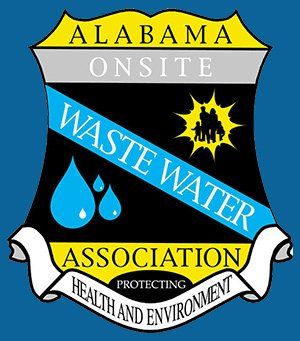Potential Sources of Extra Water That Can Overwhelm Septic Systems
- By Admin
- •
- 03 Mar, 2020
- •
Your septic system needs to continue working day in and day out or it won't be able to handle water from showers, toilets, or your laundry. So keeping the system in working order is in your best interests. Unfortunately, some homeowners don't realize that they place strain on their septic system when they expect it to process extra water.
Here are some potential sources of the extra water that could cause septic overload.
1. Stormwater Runoff
Wet weather can slow down your leach field's ability to process wastewater. That's because the field uses the soil around leach line pipes to drain wastewater. If the soil is already full of water, the draining process will be more sluggish until the excess water has time to drain away.
If you direct stormwater runoff into your septic tank, that requires more processing speed during a rain event, which your system can't provide. As you can imagine, this situation can increase the chances of malfunction due to excess water.
2. Water Softener
You may have heard that water softeners are fine for your leach field, but not all experts agree that draining the softener into the septic system is a good idea. Some say that dumping the large amount of water used in a recharge cycle all into the tank at once can be harmful.
Not only does adding a large amount of water all at once fill up the tank faster, but it may disrupt the settling process that starts the wastewater processing sequence. In addition, the water from the water softener is salty, so it can have an antimicrobial effect. This antimicrobial effect may make things even more difficult for the septic tank's processing system.
3. RV Holding Tank
Your septic system may sound like an ideal place to dump your RV holding tank, but you'll need to take care and use sensible precautions if you decide to do this. First, check to make sure that the soil in your leach field isn't already soggy, and that your septic system is functioning normally.
Then, think about whether you're already using your septic tank to its max capacity. Do you have a lot of overnight guests, for example, or are you planning to wash your laundry today? If so, now is likely not a great time to dump the RV tank. And you shouldn't dump the tank into your septic system if you use deodorizing tablets, which could harm your system's microbes.
4. Garbage Disposal
Although it probably won't overload the tank with water all by itself, a garbage disposal can be a significant factor. Running a disposal can send a similar amount of water into the tank as a toilet flush does. So if you use the disposal multiple times throughout the day, that can start to add up.
A continuous feed disposal tends to use more water than a batch feed disposal. So if you want to install a disposal in spite of the risks involved, you'll want to choose a batch feed model and only run it infrequently.
5. Dripping Faucet
Although it doesn't necessarily cause water damage to your home, a dripping faucet can still have repercussions. Two drops per second can waste about eleven gallons of water per day. Not only does this add to your water bill, but it increases the load on your septic system as well. If you have two or more dripping faucets, this could become a big factor in septic overload.
As you can see, you need to be aware of anything and everything that puts water into your septic system. If you have several of these extras, such as a disposal and a softener, as well as a dripping faucet, you may want to consider removing one or more of the factors so you'll be less likely to overload your system.
You can also call for a septic system inspection by a qualified professional. The septic contractor can help you assess which factors are most likely to affect the system. For more information about septic inspections, maintenance, and other services we offer, call the Allen's Septic Tank Service today.

